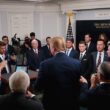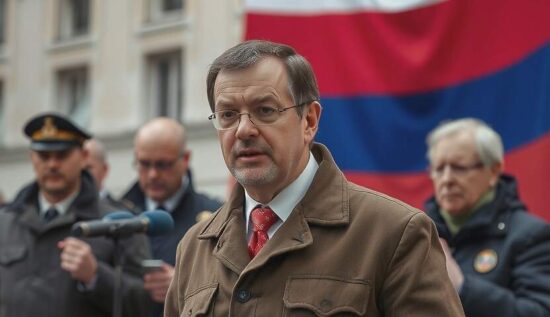Rolf Mützenich, the foreign and security policy spokesperson of the German Social Democratic Party, has spoken out on the recent developments in the German parliament, the Union’s proposals and the handling of the AfD by the Bundestag. In an interview with the Frankfurter Allgemeine Zeitung, he addressed the expected criticism of his party’s stance on Russia.
Mützenich emphasized that he had always acknowledged Russia as the aggressor in Ukraine. He acknowledged that the Social Democrats had made mistakes in the past, but he did not take responsibility for them, instead pointing out that many others had also made errors. He also mentioned that he had stopped his contacts with Russia in 2016, after he gave a speech on disarmament and arms control at the Schlangenbader Gespräche.
When asked about the German government’s stance on Russia, Mützenich stated that Germany was the second-largest supporter of Ukraine, after the United States and that this had been confirmed by Ukrainian President Volodymyr Zelenskyy. However, the Frankfurter Allgemeine Zeitung questioned this claim, citing a report from the Kiel Institute for the World Economy that ranked Germany 15th in terms of its support for Ukraine and Mützenich replied that this was a matter of interpretation.
Regarding the need for Germany to be better prepared for defense, Mützenich stated that it was necessary to increase the country’s defense capabilities, particularly in the context of Russia’s aggression against Ukraine. He emphasized the importance of European cooperation and the need for a more robust approach to defense, rather than simply increasing the budget.
In the interview, Mützenich also touched on the topic of a potential nuclear deterrent for Germany, but did not explicitly rule out the idea. He also expressed his support for a potential ceasefire in Ukraine and the need for the UN to play a role in monitoring and guaranteeing any agreement.
When asked about the possibility of German soldiers being deployed to Ukraine, Mützenich stated that this would be a decision for the German Bundestag to make and that some European countries had already announced their willingness to do so.





